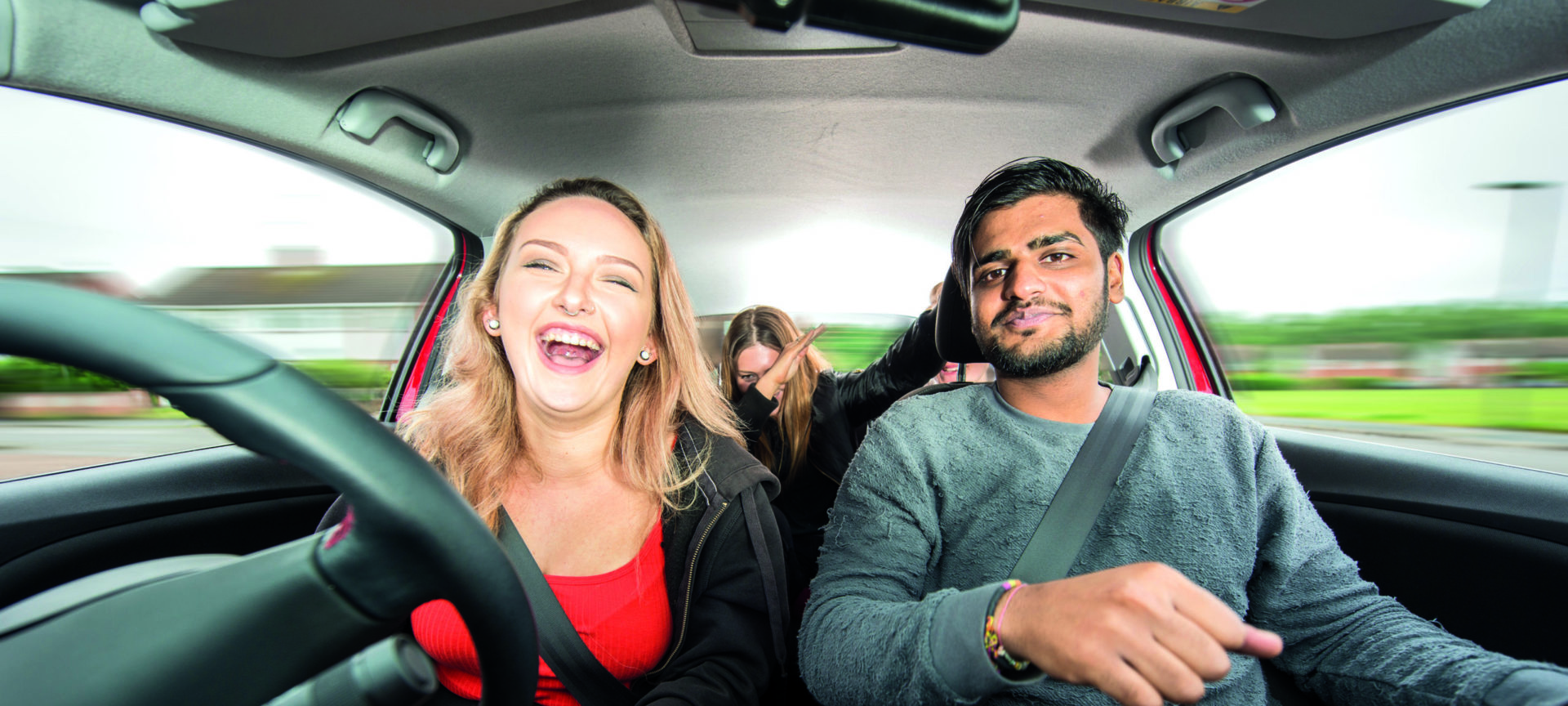Young drives may have a rep for speeding, but that’s not entirely fair. Drivers aged 35-44 are the ones who are caught and convicted the most, far more than drivers aged 17-24. What’s more, the chances are new drivers will have a telematics insurance policy, which means a higher premium for those who regularly drive too fast. So, be like most young drivers, and respect the limit. Better still, remember that it’s a limit not a target.
Your driving instructor has probably spoken to you about ‘appropriate’ speed. You need to drive at a speed that’s appropriate for the conditions. Thick fog, heavy rain or other hazards could mean an ‘appropriate’ speed is well below the legal maximum. There are times when obeying the letter of the law isn’t enough to keep you safe.
Reasons to drive at a safe speed
- You’ll save money. Sticking to the limit burns less fuel.
- You’ll pay less for insurance. Driving at a sensible speed will reduce your premium if you have a black box policy.
- You’ll keep your licence. Rack up six points for speeding offences in your first two years on the road (or any other illegal driving) and your licence will be gone.
Tired of driving
Fatigue is thought to be a bigger contributor to injury and death on the roads than drug-driving. Around 20% of collisions are reckoned to be fatigue-related and up to a quarter of fatal and serious accidents.
Fall asleep at the wheel, and you won’t brake or steer away from danger. You’ll go on to hit something – another car, a brick wall, or maybe a pedestrian – without slowing down at all.
It’s not just falling asleep completely that can cause an accident. If you are drowsy, you’ll make worse decisions and will react more slowly to hazards.
A quick coffee or an energy drink might wake you up for a while, but when the effect wears off, you’ll end up feeling more tired than you did before. So, if you are really tired, the safest thing you can do is stop and rest. A nap of around 10-20 minutes should help. Better to arrive late than not at all.
Six ways to beat fatigue
- Get a good night’s rest before a long journey.
- Avoid alcohol. Even if it is clear of your system by the time you drive it reduces the quality of sleep. If it’s still in your system, the combination of fatigue and drink can be deadly.
- Take regular breaks. Stop for a breather every two hours.
- Share the driving. ou can arrange short-term insurance by the hour, to make it easy to arrange quick cover so a mate can take a turn behind the wheel.
- Don’t drive late at night or in the early hours of the morning.
Driven to distraction
The bleep of a text, loud music, your mate messing around in the passenger seat – sometimes there’s a lot going on that can distract the driver.
Not all distractions are against the law. Using a handheld mobile phone is illegal, banter with your best friend is not. But anything that takes your attention away from the road is dangerous.
Other people are one of the biggest distractions of all. Believe it or not, young drivers are up to five times more likely to crash when they have two or more passengers in the car.
If you are driving, make sure you stay focused. And if you’re the passenger, don’t horse around. Let the driver concentrate on driving.
Five ways to avoid distractions
- Turn your phone off before you drive and put it out of reach, so you aren’t tempted to turn it back on.
- Keep the volume down and set the music playing before you set off, so you won’t need to use the controls.
- Set the sat nav destination before leaving. Rely more on voice instructions rather than staring at the screen, so you keep your eyes on the road.
- Stop to eat and drink. Don’t snack at the wheel.
- Talk later. Save in-depth conversations for when the journey is over.

